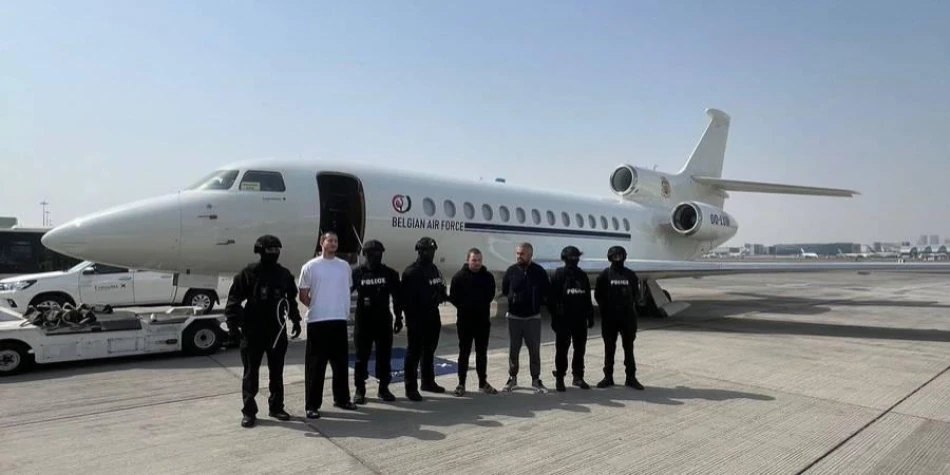
Dubai Police Apprehend Belgian Trio Linked to Transnational Organized Crime
Dubai Police Arrest Three Belgian Nationals Wanted for International Organized Crime
Dubai Police have successfully apprehended three Belgian nationals who were subjects of Interpol Red Notices for their alleged involvement in transnational organized crime. The arrests underscore Dubai's growing role as a key enforcement hub in global law enforcement cooperation and highlight the UAE's commitment to combating international criminal networks.
The Arrests and Charges
The Dubai Police General Command announced the capture of Mathias Akiazili, Georgi Kim, and Othman Beloti, all Belgian citizens wanted by their home country for involvement in cross-border organized criminal activities. The three suspects were listed on international wanted lists maintained by both Interpol and Europol, the European Union's law enforcement agency.
The arrests demonstrate the effectiveness of international police cooperation mechanisms, with Dubai serving as a critical junction where European fugitives often attempt to evade justice by relocating to what they perceive as safer jurisdictions.
Dubai's Strategic Position in Global Law Enforcement
A Hub for International Cooperation
Dubai's success in apprehending these suspects reflects the emirate's increasingly sophisticated law enforcement capabilities and its strategic importance in international criminal justice. The city's position as a global business and travel hub makes it both an attractive destination for criminals seeking to launder money or establish new operations, and an effective location for law enforcement to intercept them.
The UAE has significantly strengthened its cooperation with international law enforcement agencies over the past decade, responding to pressure from the Financial Action Task Force (FATF) and other international bodies to combat money laundering and organized crime.
Enhanced Extradition Framework
These arrests likely signal the beginning of extradition proceedings that will test the UAE's evolving legal framework for international cooperation. The country has been working to modernize its extradition treaties and procedures, particularly with European nations, as part of broader efforts to integrate more fully into the global financial system.
Implications for Criminal Networks
The successful operation sends a clear message to international criminal organizations that Dubai is no longer a safe haven for fugitives. This represents a significant shift from the emirate's historical reputation as a jurisdiction where enforcement of international warrants was inconsistent.
For organized crime networks, particularly those operating between Europe and the Middle East, the arrests demonstrate that traditional escape routes are becoming increasingly unreliable. The coordination between Belgian authorities, Interpol, Europol, and Dubai Police suggests that international law enforcement cooperation is becoming more seamless and effective.
Regional Context and Future Outlook
This development aligns with broader regional trends toward enhanced law enforcement cooperation. The UAE's efforts mirror similar initiatives in other Gulf states, where governments are balancing their roles as international business hubs with the need to maintain credibility in global financial and security systems.
The arrests also reflect the growing sophistication of Gulf law enforcement agencies, which have invested heavily in training, technology, and international partnerships over the past decade. This investment is paying dividends in terms of both domestic security and international reputation.
For international law enforcement agencies, Dubai's success in this operation reinforces the value of maintaining strong cooperative relationships with Gulf partners, particularly as criminal networks become increasingly global in their operations and more sophisticated in their methods of evading detection.
Most Viewed News

 Omar Rahman
Omar Rahman






